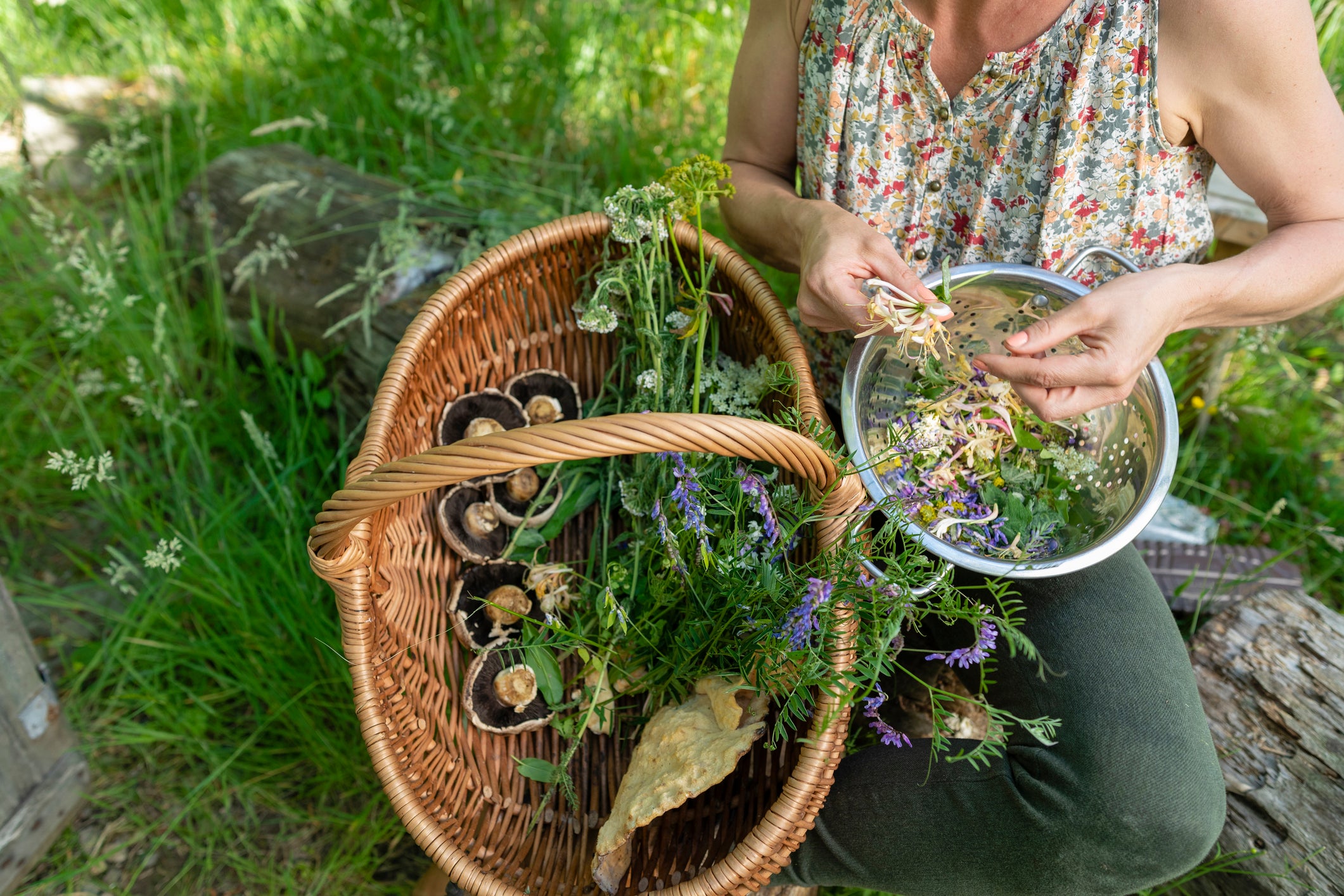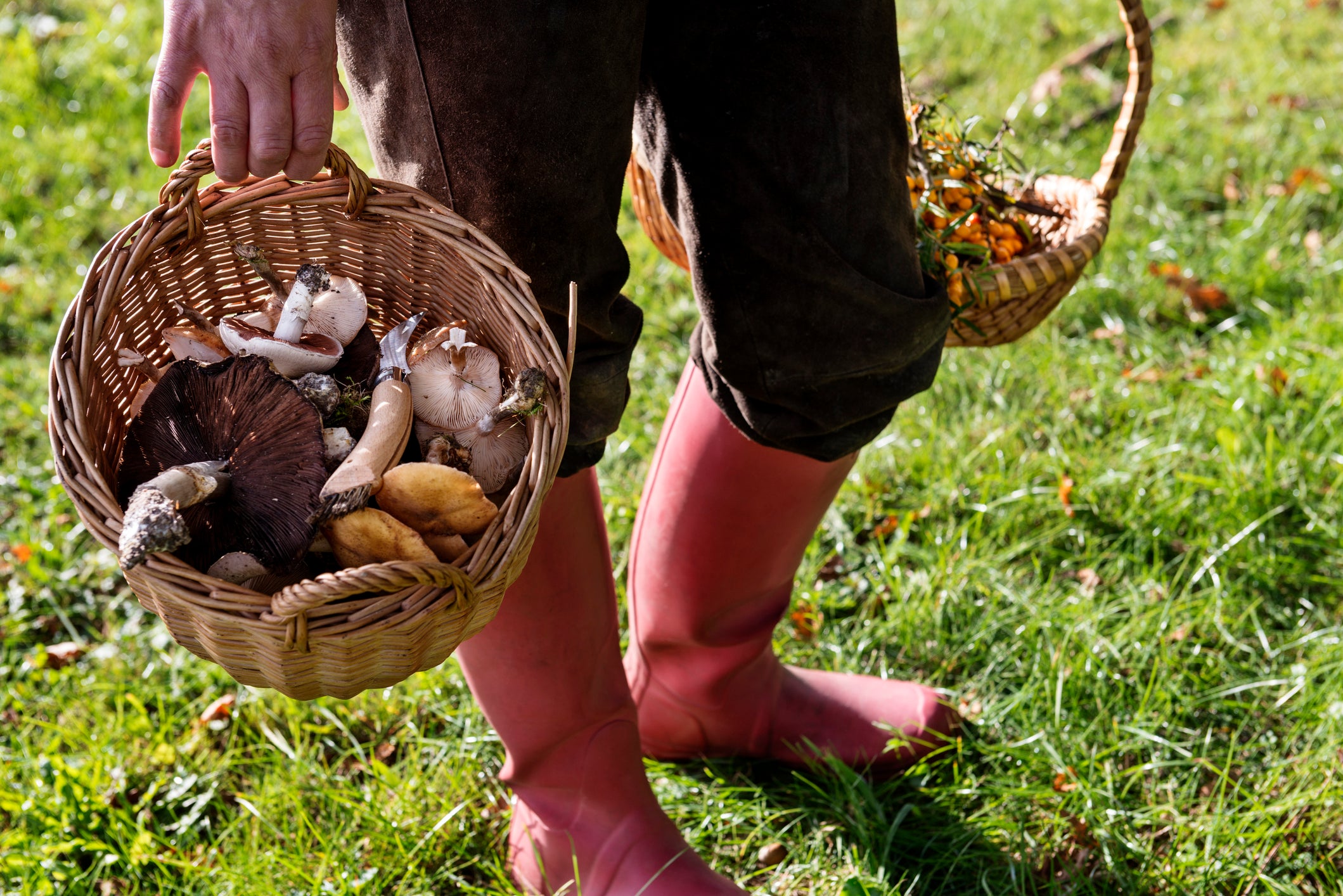Foraging food from the natural world is widely regarded as a means of connecting with nature and bringing in a few tasty morsels to the kitchen you may not be able to easily find in the supermarket.
However, a warning last week by Berks, Bucks and Oxon Wildlife Trust that it does not allow foraging on its reserves, has highlighted concerns around a practice which has seen remarkable growth in recent years.
The Trust reminded visitors that “mushrooms and toadstools are the reproductive part of the fungus and picking them can stop the fungus from releasing its spores to sustain a healthy population. It also removes hugely important sources of food for a host of wild animals and even other fungi.”
Partly due to the rise of wholesome social media accounts showcasing nature’s bounty and how to enjoy or prepare foraged foods, and partly because of a broader sense of wanting to connect with nature, foraging is in the ascendancy.
A quick visit to Instagram can show you how to prepare acorns for consumption, or usefully, how to avoid eating deathcaps – the world’s deadliest mushroom.
The rise of foraging and the accompanying social media phenomenon has led to accusations that “middle-class foragers” without the depth of knowledge needed to forage safely and sustainably, represent a risk to the environment and to their own health.

“We want people to come to our nature reserves and enjoy the wildlife we have there, including all the fantastic rare and unusual species that you won’t see at a local park, in farmland or other parts of the countryside,” the post by the Wildlife Trust said, adding: “If you’re going to take anything at our nature reserves, make it a photograph, and please leave the beautiful wildlife for others to enjoy.”
For people interested in learning how to forage legally, safely and sustainably, there are numerous experts offering advice, who are part of the Association of Foragers – a members organisation which promotes best practices.
“I lead foraging walks for most of the year and a lot of people come on the walks with little knowledge. But that’s what’s great about doing walks in person – you’re able to inform people about what’s sustainable and what’s legal,” said Liam O’Brien, who is based in Dorset and runs foraging walks and related activities.
“I can see the point that social media has fuelled an interest in it, but it ties in with that people are looking to connect with nature. I think as a society we’re quite disconnected from nature and it’s good that people are wanting to reconnect and learn.”
He added: “I’m a big supporter of the right to roam movement. We should have something similar to what was introduced to Scotland not that long ago – and have the right to roam respectfully on land, because there are huge amounts of land blocked off in private hands and behind fences.”

To newcomers looking to get into foraging, O’Brien said he would recommend going on a walk with a foraging expert.
“There are so many talented foraging guides and teachers all over this country. Through the Association of Foragers’ website, people can see who’s doing walks in their local area and go and learn in person. It can really help to increase people’s confidence, help them understand the risks and learn how to do it sustainably.
“If they learn how to do things respectfully and sustainably and leave some for nature – the animals and the insects as well as other foragers – there’s more than enough to go around.”
